Search is now available for the website, it is getting massive.
Use this if you are looking for specific topics titles or use keywords like:
Climate, Democracy, Education
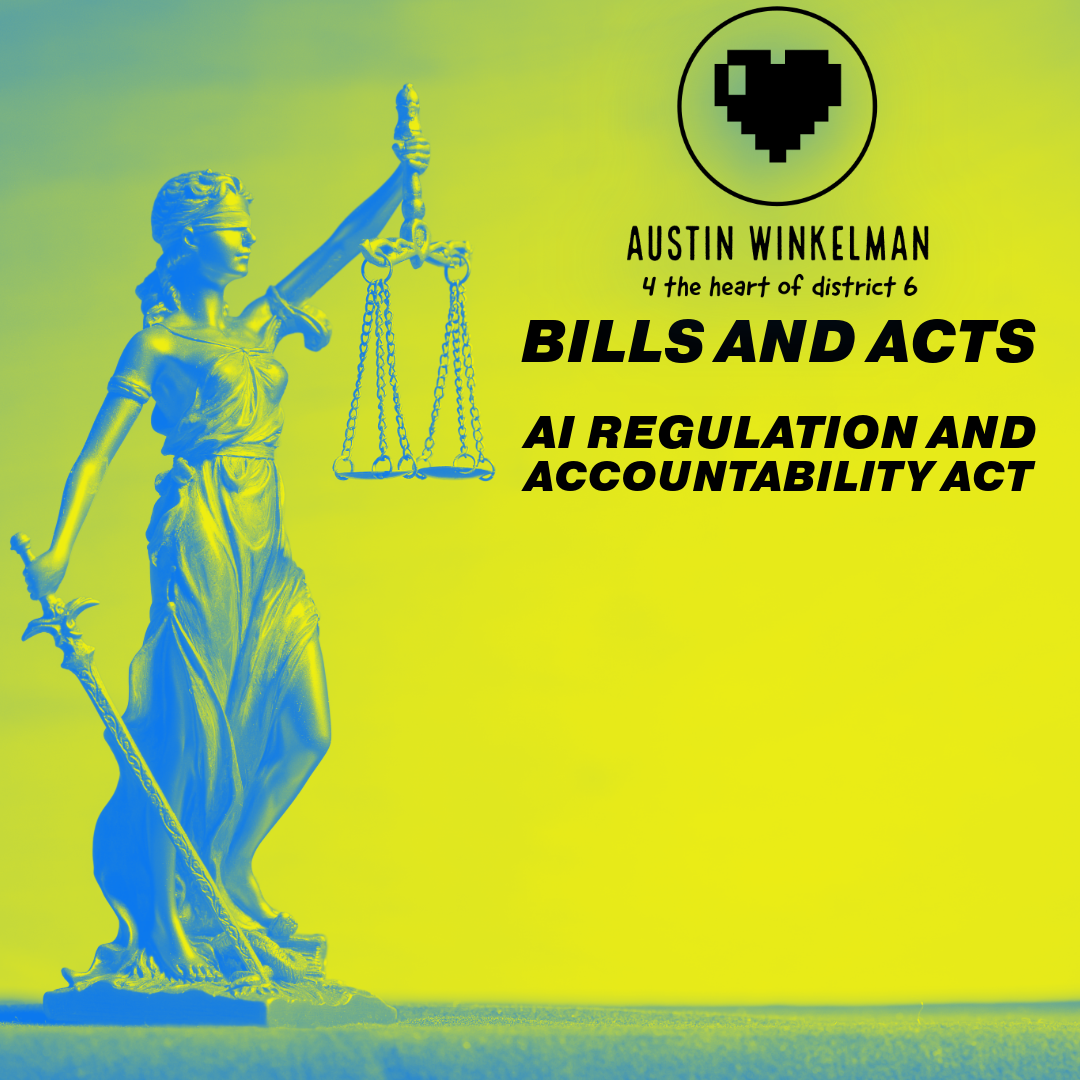
AI Regulation and Accountability Act
to establish a comprehensive framework for the development, deployment, and use of artificial intelligence.
to ensure accountability and transparency in the creation and operation of artificial intelligence systems.
to prohibit harmful and unlawful applications of artificial intelligence.
to encourage innovation and socially beneficial uses of artificial intelligence; and
to safeguard public trust, safety, rights, and democratic institutions.
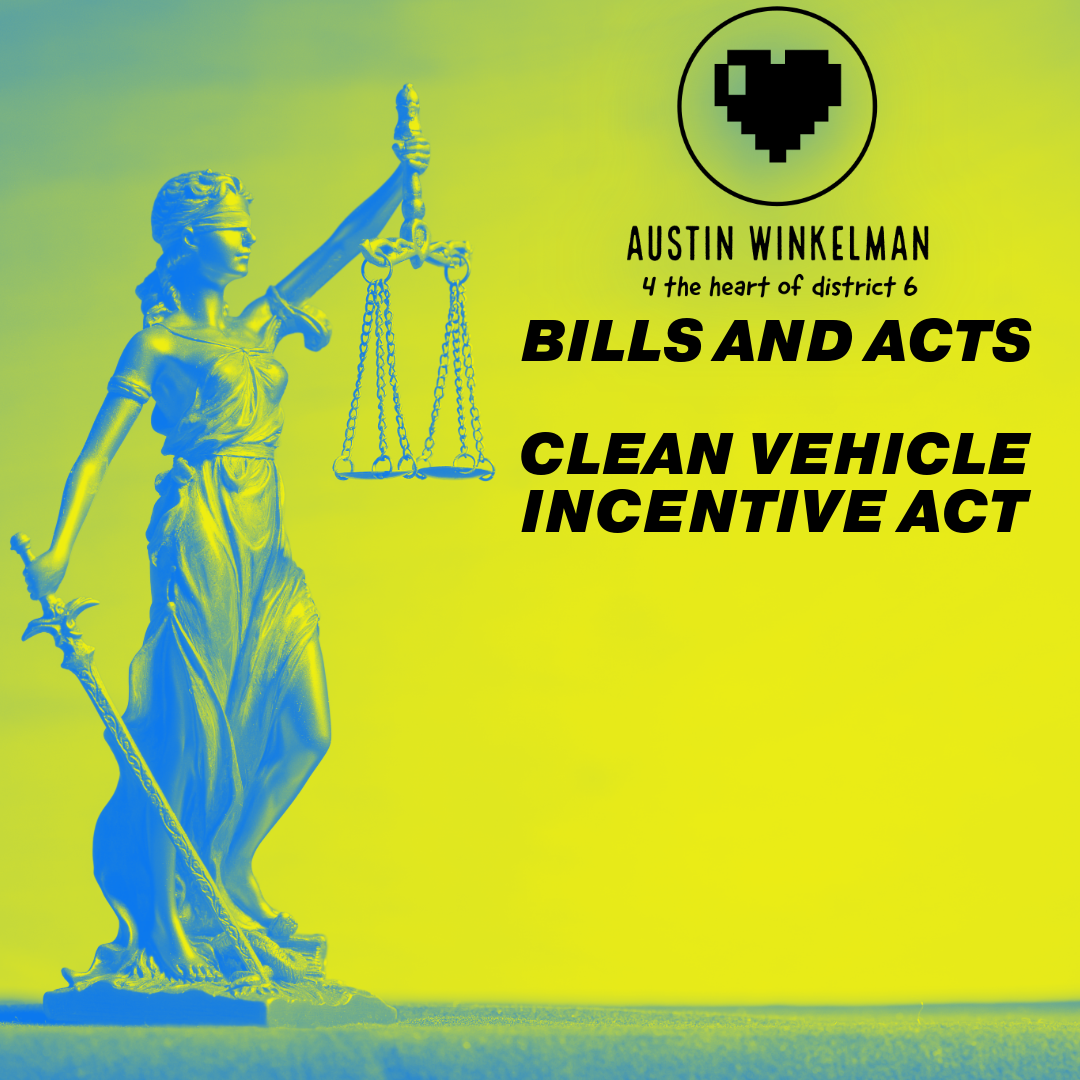
Clean Vehicle Incentive Act
The purpose of this Act is to repeal and replace section 4064 of the Internal Revenue Code of 1986 (commonly known as the “Gas Guzzler Tax”) so as to:
1. Eliminate the existing excise tax on passenger cars and light vans.
2. Establish a manufacturer tax credit of $1,000 for each new vehicle meeting clean-energy or small-engine standards (electric, hybrid, or gasoline engines no larger than 4.4 liter 4-cylinder).
3. Maintain a surcharge on all vehicles with a gross vehicle weight rating (GVWR) over 6,000 pounds that fail to meet the EPA’s combined fuel-economy threshold, with surcharges ranging from $1,000 up to $7,700 per vehicle.
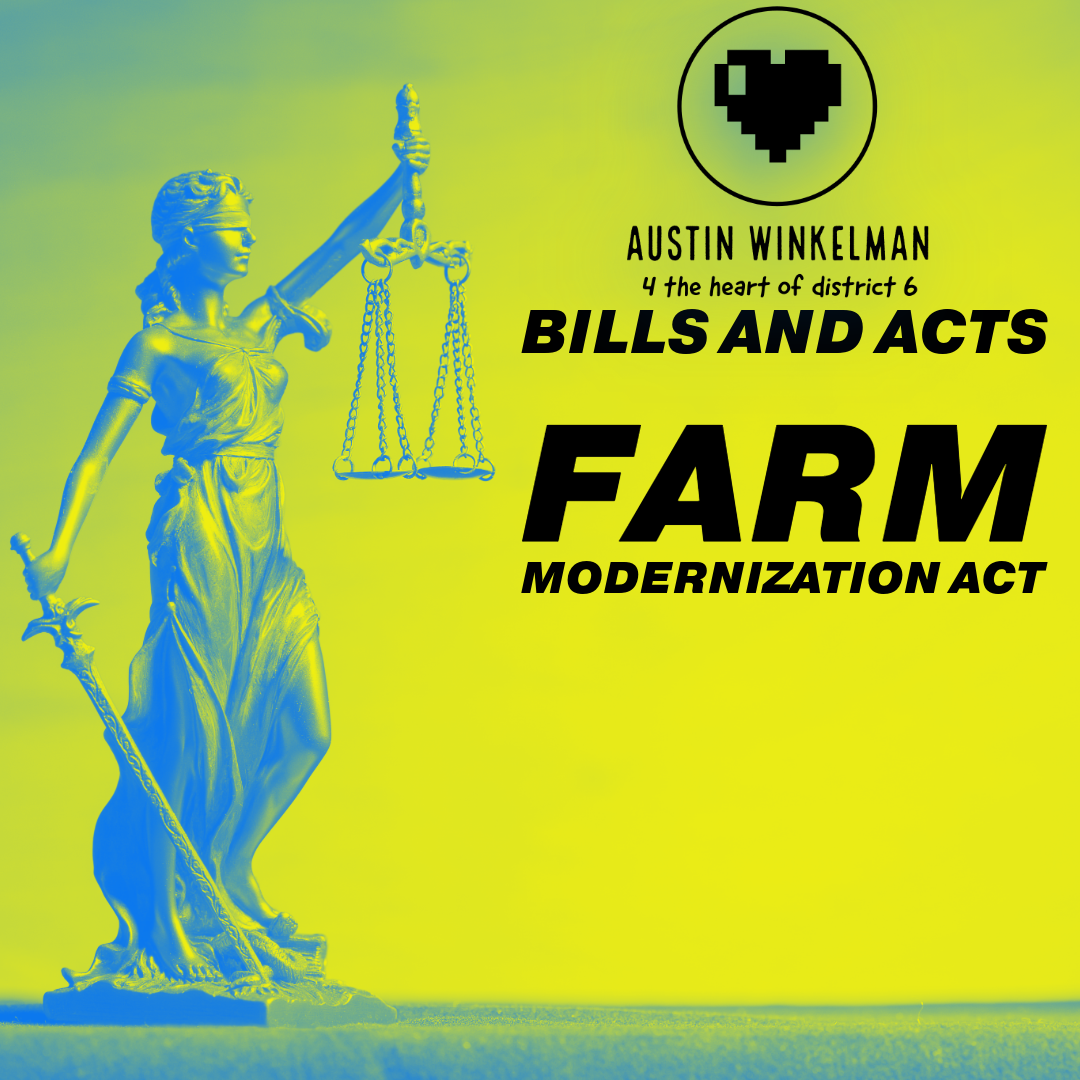
Farm Modernization Act
The purpose of this Act is to ensure the stability, sustainability, and modernization of the United States food supply infrastructure by providing targeted support and funding for American farms to adapt to evolving technological, environmental, and economic challenges.

War on Wealth Tax plan
A historically inspired fiscal plan modeled on post-WWII tax policy, updated for the modern U.S. economy. Inspired by the successful post-WWII approach, this plan targets debt reduction through: Progressive taxation, corporate accountability, Strategic growth investments, and Responsible budgeting.

The War on Wealth Policy Analysis
Austin Winkelman for Congress 2026
Introduction and Policy Overview
In this analysis, we evaluate the effects of repealing the 2017 Trump-era tax cuts and implementing a
modernized version of post–World War II U.S. tax policy. During the post-WWII era (1940s–1960s), the U.S.
tax code featured very high progressive rates – top marginal income tax rates above 90% and corporate tax rates
around 50% – alongside a broader tax base. We consider a proposal that emulates that framework, updated for today’s economy.

War on wealth Tax Evasion plan
When the U.S. adapts and implements a strategy like this to go after wealthy tax cheats, the effects would ripple across economics, politics, public trust, and even the global financial system. A realistic assessment of likely effects both positive and challenging. If done well with transparency, legal precision, international coordination, and firm public backing this strategy could:
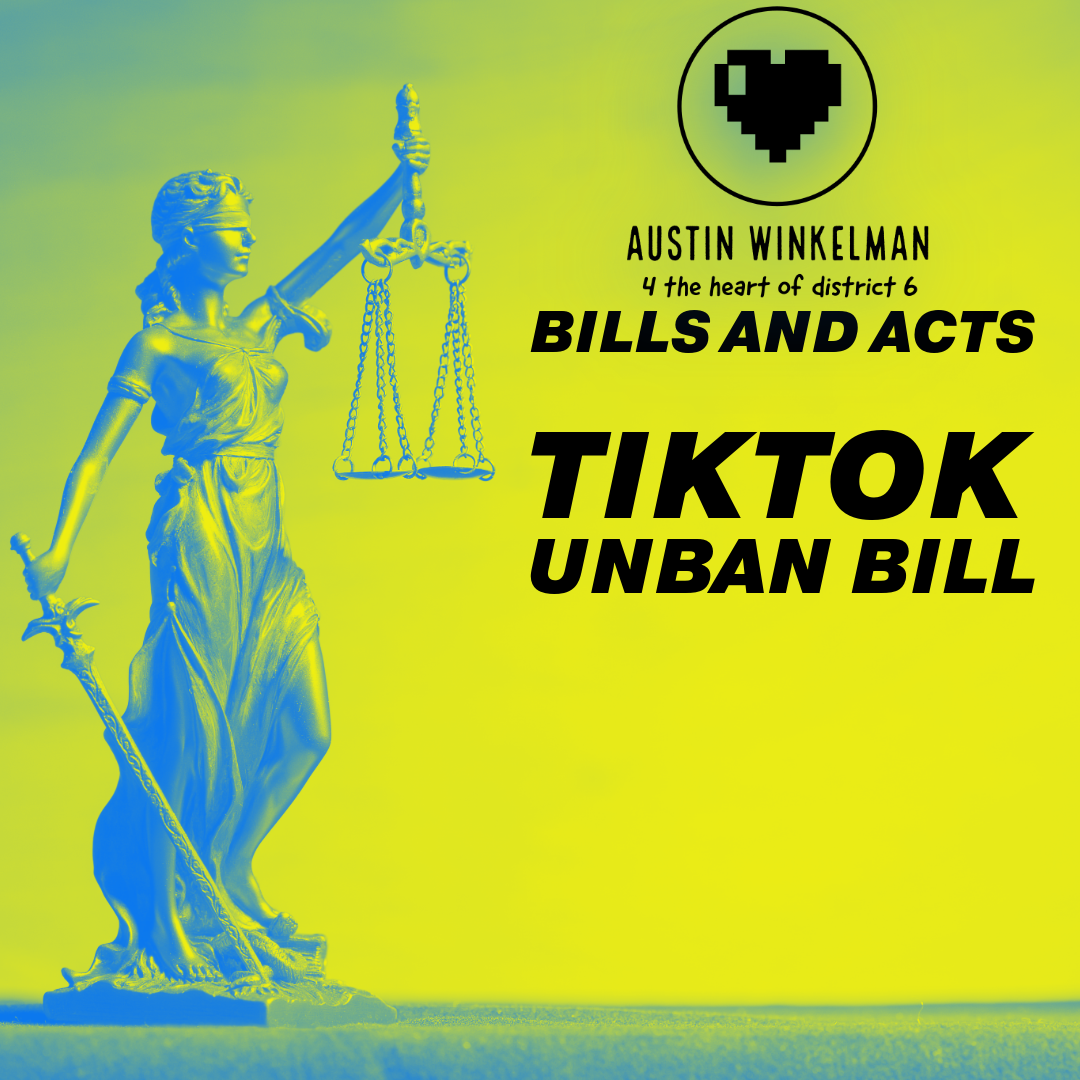
TikTok unban Bill
Purposes - The purposes of this Act are:
To repel H.R. 7521 and ensure that any regulation of social media platforms respects constitutional guarantees of free speech and due process.
To establish the Department of Algorithm (DOA) to review, report, and advise on algorithmic biases.
To protect individual digital privacy and data rights through responsible limitations on data collection and sale.
To clarify the process by which Congress, subject to judicial review and presidential discretion, may ban certain digital platforms or applications when necessary and lawful.
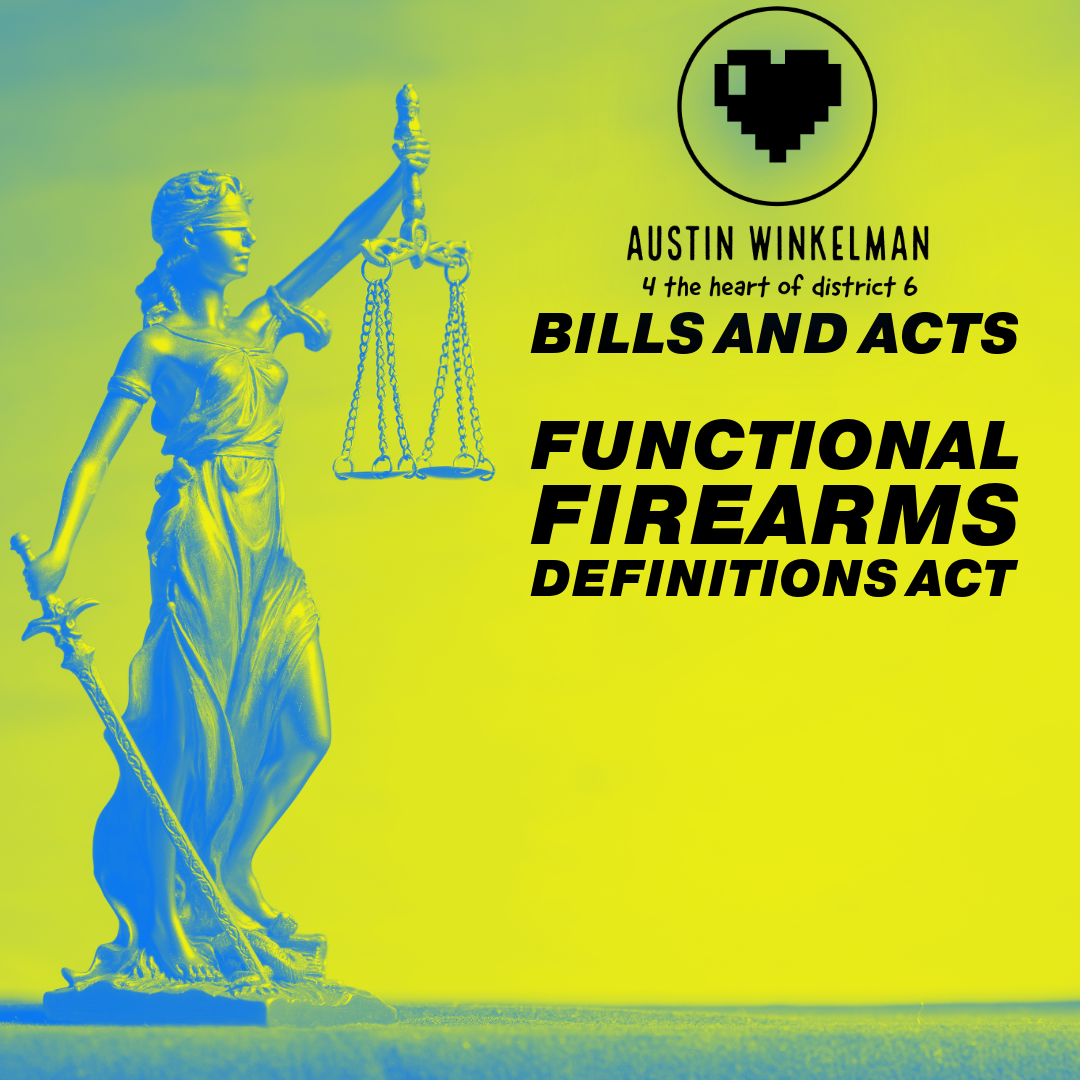
Functional Firearms Definitions Act
The existing definitions of certain classes of firearms in Title 18, United States Code, do not adequately address the functional characteristics of specific weapons.
Enhanced clarity in firearm definitions will assist law enforcement in preventing access to high-powered or automatic weapons by violent offenders, drug cartels, and domestic terrorists.
Purpose. The purpose of this Act is to revise 18 U.S.C. § 921 to define certain classes of firearms according to their functional characteristics, thereby closing loopholes and improving enforcement of existing laws.

